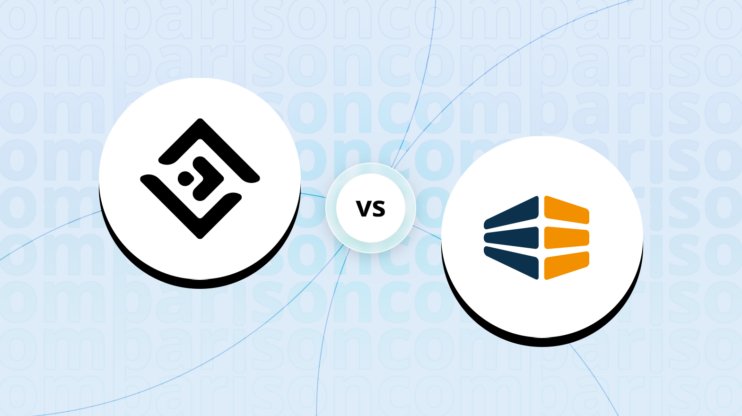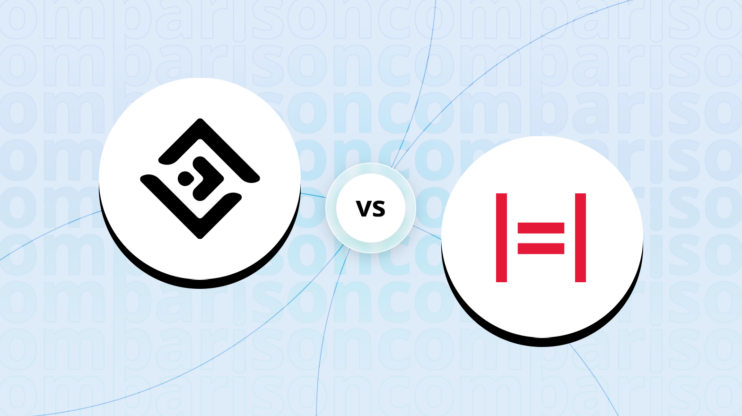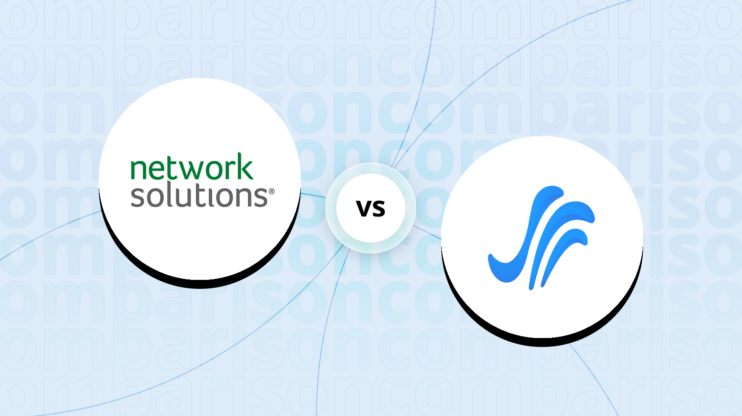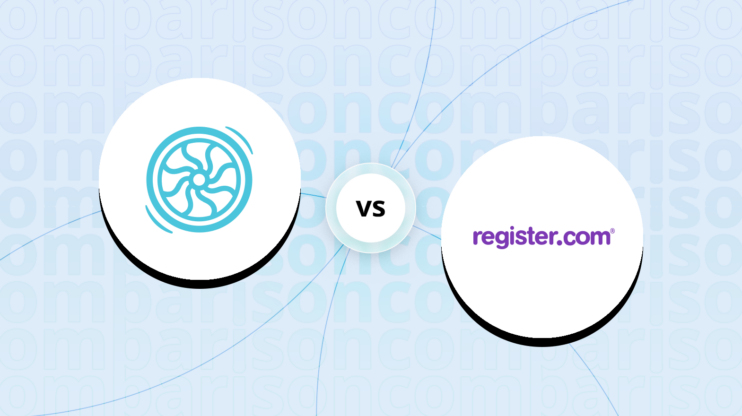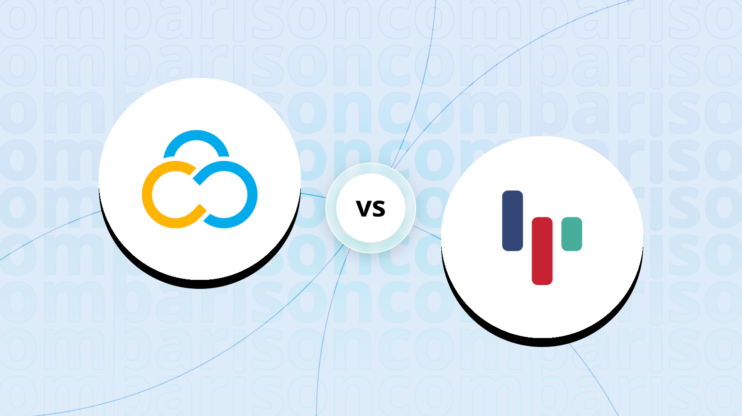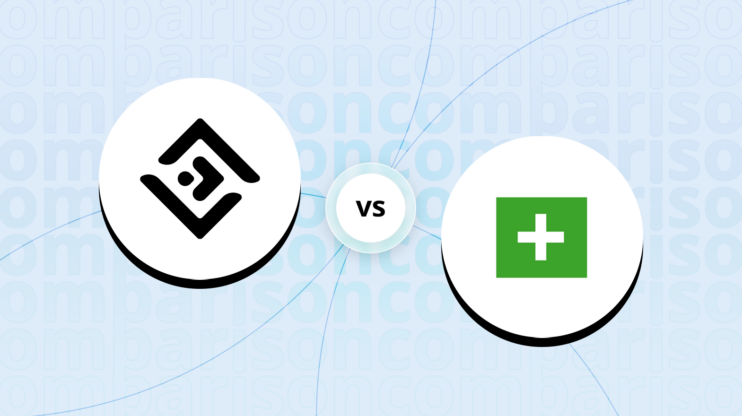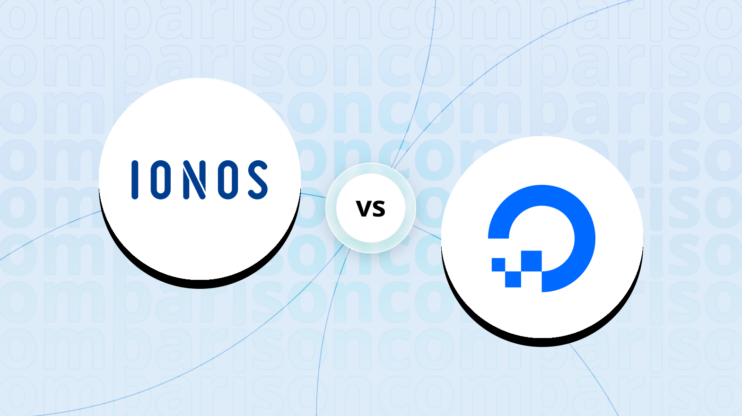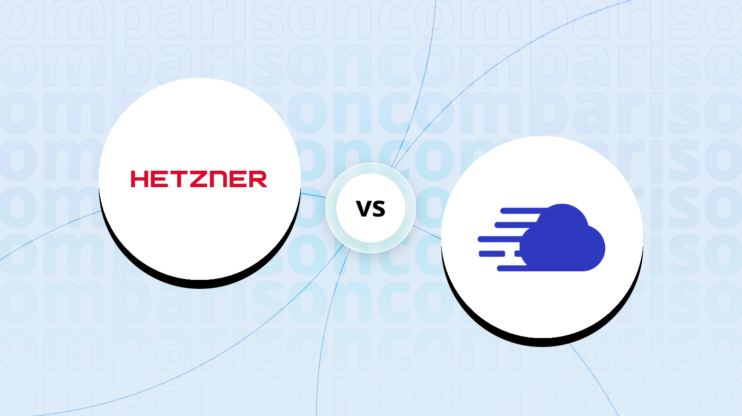Final verdict
Looking over Hivelocity vs. Leaseweb, both services excel in different areas, making each suitable for varied user needs.
-
Leaseweb (Overall grade: 8.0)
provides a comprehensive range of hosting services, including shared hosting, which Hivelocity does not offer. It stands out with superior support for WordPress and ecommerce hosting, making it ideal for businesses focused on long-term growth and stability. Leaseweb also provides high bandwidth and network capacity suitable for high-traffic websites, backed by a global network presence. While it shows nearly flawless uptime for its shared hosting, slight downtime during testing and varied support response times may concern high-demand applications. Additionally, Leaseweb offers email hosting and a website builder, enhancing ease of setup and usability for users. However, its security and compliance features are less detailed compared to Hivelocity.
Hivelocity (Overall grade: 7.7)
shines with its impeccable uptime track record, boasting 99.99% uptime guarantee and having maintained 100% uptime for network and power since 2011. It offers robust managed services, proactive security measures, and comprehensive support, making it highly reliable and secure. Though it lacks free domain offerings and built-in website builder features, Hivelocity offers a wide array of customizable hosting solutions, including private clouds and dedicated servers. Its technical and operational security measures are more advanced, although Leaseweb offers a broader array of functionalities and more user-friendly options. For businesses needing stringent data protection or extensive customization, Hivelocity is a strong contender.
 Overall grade:7.7 |
 Overall grade:8.0 |
|
|---|---|---|
| Uptime and Availability | 9.8 | 8.7 |
| Hosting Performance | 7.0 | 8.6 |
| Hosting Security | 8.7 | 8.3 |
| Price | 8.7 | 8.3 |
| Hosting Features | 2.5 | 6.8 |
| Ease Of Setup | 8.5 | 7.1 |
| User Management | 6.9 | 7.0 |
| Customer Support | 9.5 | 9.1 |
| User feedback | 4.9/5 | 2.8/5 |
Hosting types offered
Both platforms provide a variety of hosting types, each designed to meet the different needs of users.
 |
 |
|
|---|---|---|
| Shared hosting | ||
| Cloud hosting | ||
| WordPress hosting | ||
| Ecommerce hosting | ||
| VPS hosting | ||
| Dedicated hosting |
Although both offer a variety of hosting plans tailored to different needs, in
certain cases, one platform may prove to be more suitable.
Detailed comparison
Uptime and availability
Evaluates the average uptime statistics, uptime guarantee and overall availability of the hosting
provider
Score Components:
- Uptime percentage (30%): evaluates the uptime statistics in given period of time
- Uptime guarantee (20%): Assesses if the platform offers an uptime guarantee and
whether the actual uptime matches the promised guarantee. - General performance (25%): Evaluates how fast is the average response time and overall
it’s stability. - Responsiveness (10%): Adaptability to different devices and screen sizes.
- Availability (25%): Reflects the total downtime and number of outages.
 9.8
9.8
 8.7
8.7
🏆 Winner
Hivelocity: Hivelocity’s 99.99% uptime guarantee and their 100% uptime for network and power since 2011, combined with its superior 24/7 monitoring and redundant systems, make it a superior choice for ultimate reliability.

Hivelocity and Leaseweb both offer impressive uptime guarantees, but Hivelocity’s commitment stands out. Hivelocity offers a 99.99% uptime guarantee and has maintained 100% uptime for network and power since 2011. Their 24/7 uptime monitoring, redundant power systems, and multi-carrier network ensure unparalleled stability. With multiple certified data centers and enterprise-grade performance, customers can rely on Hivelocity for consistent uptime and optimal service.
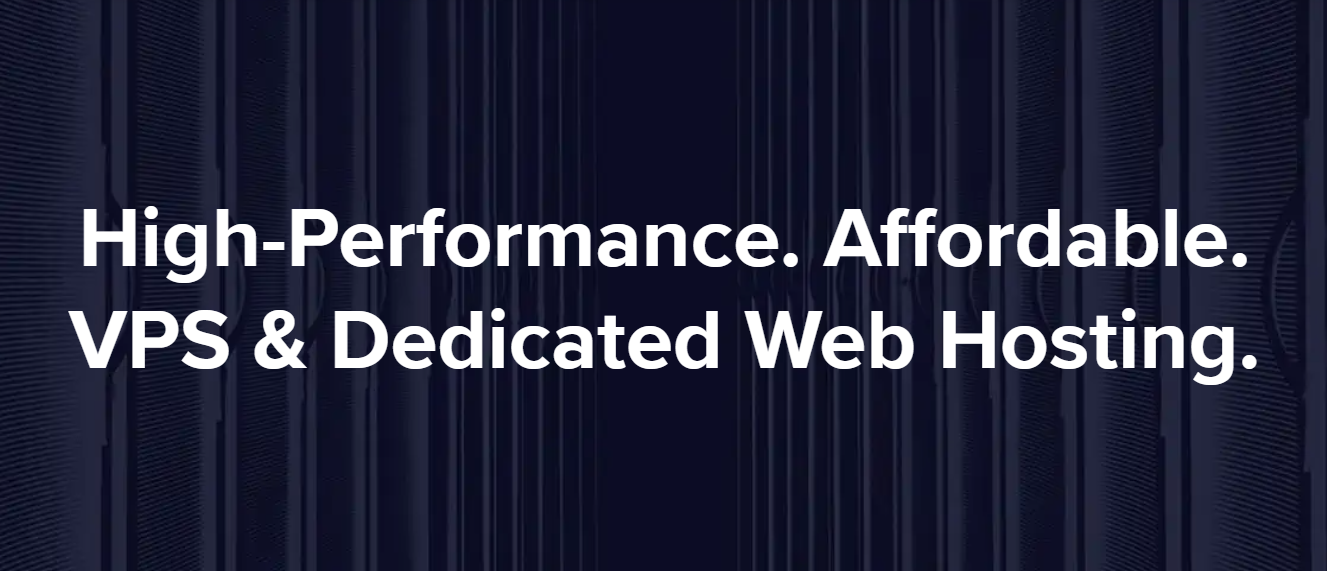
Leaseweb boasts a core uptime guarantee of 99.999%, with their shared hosting showing nearly faultless performance. Their extensive network capacity and global data center presence cater to a wide range of needs. However, the slight downtime during testing and varied support response times could be a concern for high-demand applications. While both providers are robust options, Hivelocity’s impeccable track record and proactive measures make it the preferred choice for businesses seeking ultimate reliability.
Hosting performance
Score Components:
- Hosting speed (30%): This includes SSD quality, Load times, PageSpeed score ranges,
additional information on website speed, built-in plugins for performance enhancement, available caching
methods, and CPU/RAM options - CDN (20%): Considers whether CDN is available or not, whether it’s free or paid, and
the quality of the CDN service - Available data centers (30%): Evaluates the number of data centers and their locations
globally. - Scalibility (20%): Looks at whether elastic scaling is available, the process required
to scale (manual upgrade vs. automatic scaling), the presence of dedicated servers, and the costs
associated with scaling.
 7.0
7.0
 8.6
8.6
🏆 Winner Leaseweb: Offers a higher performance ratio with extensive global reach and high compute capabilities.
Leaseweb edges out Hivelocity in terms of general performance primarily due to its extensive compute power, flexible configurations, and a higher bandwidth capacity. Leaseweb’s servers come with CPUs featuring up to 64 cores, substantial memory, and optional GPU support, making it a powerhouse for various high-performance tasks. Both providers offer a range of high-quality data centers globally, but Leaseweb enhances this with a massive network that includes 43 points of presence and 29 Internet Exchanges. Hivelocity, on the other hand, still provides impressive features like a self-healing international network and multiple Tier-1 carriers ensuring high reliability and performance.
Website Speed
When it comes to website speed, Leaseweb’s higher bandwidth options and top-tier data center hardware contribute to faster load times and better overall performance. Hivelocity does offer instant deployment and robust network features, but Leaseweb’s extensive peering and higher available port speeds (up to 100Gbps) give it an edge in ensuring minimal latency and faster data transfer rates.
Scalability
Both hosting services offer flexible scalability options. Hivelocity has customizable solutions including private clouds and server clusters, providing ease for those looking to scale operations. Leaseweb offers similarly flexible configuration options but doesn’t specify if they have elastic scaling or if upgrades must be manually performed. Both providers offer dedicated servers and competitive pricing to support growth as needed.
Hosting security
and regulatory requirements
Score Components:
- Technical security measures (40%): This includes encryption, firewalls, DDoS
protection, secure configurations, server monitoring, access control and availability of security addons
(e.g Sitelock security). - Operational security measures (30%): Encompasses data privacy, backups and data
redundancy. - Compliance and certifications (20%): Adherence to legal and regulatory requirements
(e.g., GDPR, HIPAA) and possession of certifications (e.g., ISO 27001, SOC 2). - Business and reliability (10%): Factors in the provider’s reputation, uptime
guarantees, and customer support.
 8.7
8.7
 8.3
8.3
🏆 Winner
Hivelocity Hosting: Offers robust security and compliance features, making it ideal for businesses requiring stringent data protection standards.
Both Hivelocity Hosting and Leaseweb, have notable differences in their approaches to technical and operational
security, as well as in their compliance with regulations.
Technical security measures:
Hivelocity Hosting employs multiple SSL certificate types, including Domain Validated (DV), Organization Validated (OV), and Extended Validated (EV), catering from basic to high-security needs. Leaseweb provides SSL certificates as well but lacks detailed categorization. Hivelocity also excels in offering advanced encryption technologies, robust firewall capabilities, and proactive malware scanning. Leaseweb provides penetration testing and collaboration with Northwave for cybersecurity insights. Both offer DDoS protection, but Hivelocity’s firewall and authentication measures provide higher granularity and control.
Operational security measures:
Hivelocity stands out with continuous 24/7 monitoring, real-time problem resolution, and advanced hardware diagnostics. Leaseweb’s Security Operations Center (SOC) also offers 24/7 monitoring but focuses more on managed cyber security with SIEM services. Hivelocity includes advanced features like load balancing and hardware usage monitoring. Leaseweb allows customizable security profiles and dashboards but lacks some of the proactive measures seen in Hivelocity, like brute force detection and proactive malware scanning.
Compliance and certifications:
Hivelocity is compliant with SSAE-16, HIPAA, and PCI audits, making it well-suited for industries with stringent regulatory requirements. Leaseweb, on the other hand, adheres to GDPR and PCI compliance but lacks HIPAA certification. Both providers have a robust focus on maintaining high standards of data protection, but Hivelocity’s broader compliance makes it more versatile for various sectors.
 |
 |
|
|---|---|---|
SSL certificate |
DV, OV, EV |
SSL certificates |
Additional security features |
Advanced encryption, firewall hardening, proactive malware scanning |
Managed cyber security, penetration testing |
PHP versions |
Not specified |
Not specified |
GDPR compliance |
Not specified |
Yes |
HIPAA compliance |
Yes |
Not specified |
PCI compliance |
Yes |
Yes |
Hosting features
Score Components:
- Domains (20%): Assesses the availability of a free domain, domain purchase options, and
pricing - Email (15%): Considers if the provider offers full email hosting, or is reselling
third-party service, and if the email is only transactional or not - Website builder (15%): Checks if website builder is available, and it’s user
friendliness and overall the level of customization allowed. - Staging environment (20%): Determines if a staging environment is available, allowing
for testing changes before going live. - FTP & SFTP accounts (10%): Evaluates if and how easily users can access FTP and
SFTP accounts - Git and SSH access (20%): Assess whether Git is integrated into the hosting service and
if SSH access is provided
 2.5
2.5
 6.8
6.8
🏆 Winner
Leaseweb: Providing functionality, range of plans, and solid email hosting services.
When comparing Hivelocity and Leaseweb, both providers offer a wide array of features but cater to different user needs. Hivelocity provides robust managed services with 24/7 support, proactive security measures, and performance optimizations. It supports multiple control panels and operating systems, offering flexibility and comprehensive server management. However, Hivelocity lacks an explicit website builder, potentially making it less user-friendly for those less experienced in server management or those looking to create websites with complex customizations easily.
Leaseweb’s web hosting plans cater to various business sizes with straightforward, scalable options. Their VPS hosting services offer high-performance solutions with DDoS protection and firewall services. Leaseweb’s hosting plans are user-friendly with easy-to-use control panels designed for automation and scalability, which include features such as a website builder that’s not distinctly highlighted in Hivelocity’s offerings. Leaseweb’s inclusion of a website builder can be a significant advantage for users seeking ease of setup and customization. The structured pricing and service plans further enhance Leaseweb’s appeal, catering to budgets and specific resource requirements.
 |
 |
|
|---|---|---|
Free domain |
No |
No |
Free SSL |
Yes |
No |
Email hosting |
Not specified |
Yes |
Website builder |
No |
Yes |
Staging environment |
Not specified |
No |
FTP & SFTP accounts |
Yes |
Yes |
Git and SSH access |
Yes |
Yes |
Free backup |
Yes (Rapid Restore) |
No |
Money back guarantee |
Not specified |
Not specified |
As a result in rare cases the features mentioned here can differ from the ones you see on their websites.
Both providers support a range of users from beginners to experts with user-friendly website builders and WordPress staging areas. However, in terms of developer tools, both Hivelocity and Leaseweb offer robust options including SSH access, support for multiple programming languages, and Git for version control, thus appealing to developers looking for advanced capabilities.
Email services:
Hivelocity doesn’t specify details about their email hosting capabilities, which may include transactional email functionalities as part of their managed services. Leaseweb offers explicit email hosting with varying limits depending on the plan, such as 10 mailboxes for the Small plan up to 250 for the Large plan. Leaseweb’s structure supports both email campaigns and transactional emails, providing various options for users depending on the scale of their operations.
Price
Score Components:
- Plan value (40%): What each pricing tier offers.
- Transparency and clarity (30%): Clearness of pricing structures.
- Flexibility of plans (20%): Range of options to suit different budgets.
- Hidden costs (10%): Additional expenses not included in the plan.
 8.7
8.7
 8.3
8.3
🏆 Winner
Hivelocity: Hivelocity scores slightly higher overall, mainly due to the robust features included in their plans and the transparency of what’s included.
Evaluating the pricing of plans among various hosting providers can be complex due to their differing pricing and renewal strategies. Additionally, certain plans require annual commitments, which adds to the difficulty of making comparisons. The prices listed are based on monthly commitments; plans requiring annual commitments are indicated. Additionally, although some providers offer identical plans for WordPress and shared hosting, we have created separate tables for each to enhance clarity.
When comparing Hivelocity and Leaseweb, Hivelocity offers more economical and diverse hosting plans including cPanel dedicated server hosting, instant servers, game server solutions, and custom-built bare metal servers. Leaseweb stands out with its budget-friendly web hosting plans, domain registration services, and detailed SLAs. Hivelocity’s managed services start at $35/month, providing comprehensive support, while Leaseweb offers robust cloud solutions and scalable VPS hosting options. Hivelocity’s extensive global data centers add a layer of flexibility and reach.
 |
 |
|---|---|
|
Custom-built bare metal dedicated server solutions (starting at various prices based on custom needs): Free consultation, 24/7 on-premises support, private clouds, server clusters, virtual environments, ProxMox, Plesk, RAID monitoring.
Value for price:8.7
|
Small – Linux (€5.99 PM): 1 website, 25 GB SSD, MYSQL: 5, MAILBOXES: 10, 1-day delivery.
Value for price:8.3
|
 |
 |
|---|---|
|
Custom-built bare metal dedicated server solutions (starting at various prices based on custom needs): Free consultation, 24/7 on-premises support, private clouds, server clusters, virtual environments, ProxMox, Plesk, RAID monitoring.
Value for price:8.7
|
Small – Linux (€5.99 PM): 1 website, 25 GB SSD, MYSQL: 5, MAILBOXES: 10, 1-day delivery.
Value for price:8.3
|
|
Managed services (starting at $35/mo): Hardware diagnostics, network intrusion monitoring, remote/manual reboots, OS reloads, proactive security updates, malware scanning, performance optimization, RAID monitoring.
Value for price:8.7
|
Medium – Linux (€8.99 PM): 1 website, 100 GB SSD, MYSQL: 10, MAILBOXES: 50, 1-day delivery.
Value for price:8.3
|
|
|
Large – Linux (€10.99 PM): 1 website, 250 GB SSD, MYSQL: 50, MAILBOXES: 250, 1-day delivery.
Value for price:8.3
|
 |
 |
|---|---|
|
Custom-built bare metal dedicated server solutions (starting at various prices based on custom needs): Free consultation, 24/7 on-premises support, private clouds, server clusters, virtual environments, ProxMox, Plesk, RAID monitoring.
Value for price:8.7
|
Public Cloud (price based on resource demand): Flexible resource pools, advanced API, data sovereignty, no upfront investment, load-balancer.
Value for price:8.3
|
|
Cloud storage (Up to 2TB): Daily backup, restore points, SSL certificates, DDoS protection, Juniper hardware firewall.
Value for price:8.7
|
Elastic Compute (price based on resource demand): Flexible compute resources, on-demand billing, extensive networking, powerful API.
Value for price:8.3
|
|
|
VMware vCloud (price based on resource demand): Flexible resource pools, public/private connections, managed by Leaseweb.
Value for price:8.3
|
Enterprise plans
For enterprises, Hivelocity’s custom-built bare metal dedicated server solutions provide comprehensive tailoring options with 24/7 support and a free consultation service, making it ideal for businesses with specific needs. Leaseweb’s cloud solutions, including their Public Cloud and VMware vCloud plans, offer scalability and a range of advanced features suitable for dynamic business environments. Both providers excel in offering flexible, enterprise-grade services, with Hivelocity standing out for its managed services and extensive support, while Leaseweb’s strength lies in its versatile cloud infrastructure.
Ease of setup
platform.
Score Components:
- Site migration (25%): Assesses whether the provider offers tools for site migration,
either automated or manual, and whether these services are free or require a fee. - Admin panel usability (35%): Evaluates the type of admin panel provided, such as the
standard cPanel or a custom solution, focusing on its accessibility and user-friendliness for both
technical and non-technical users. - Setup features (20%): Examines the availability and ease of use of various setup
features, including FTP accounts, file managers, email account setup, PHPMyAdmin, and easy CDN
configuration. - Help center quality (20%): Measures the quality and accessibility of the provider’s
help center resources, including articles and tutorials.
 8.5
8.5
 7.1
7.1
🏆 Winner Hivelocity: Hivelocity stands out for its ease of setup and comprehensive support.
Hivelocity offers a wide variety of control panels such as cPanel, DirectAdmin, Plesk, and more, making server and website management accessible for both technical and non-technical users. The availability of instant server deployment in just 5 to 7 minutes adds to the user-friendly experience. Additionally, their managed services for Linux, cPanel, and Windows can handle the server management, freeing up technical staff and simplifying the setup process. These features provide a versatile environment for different users, from beginners to seasoned professionals.
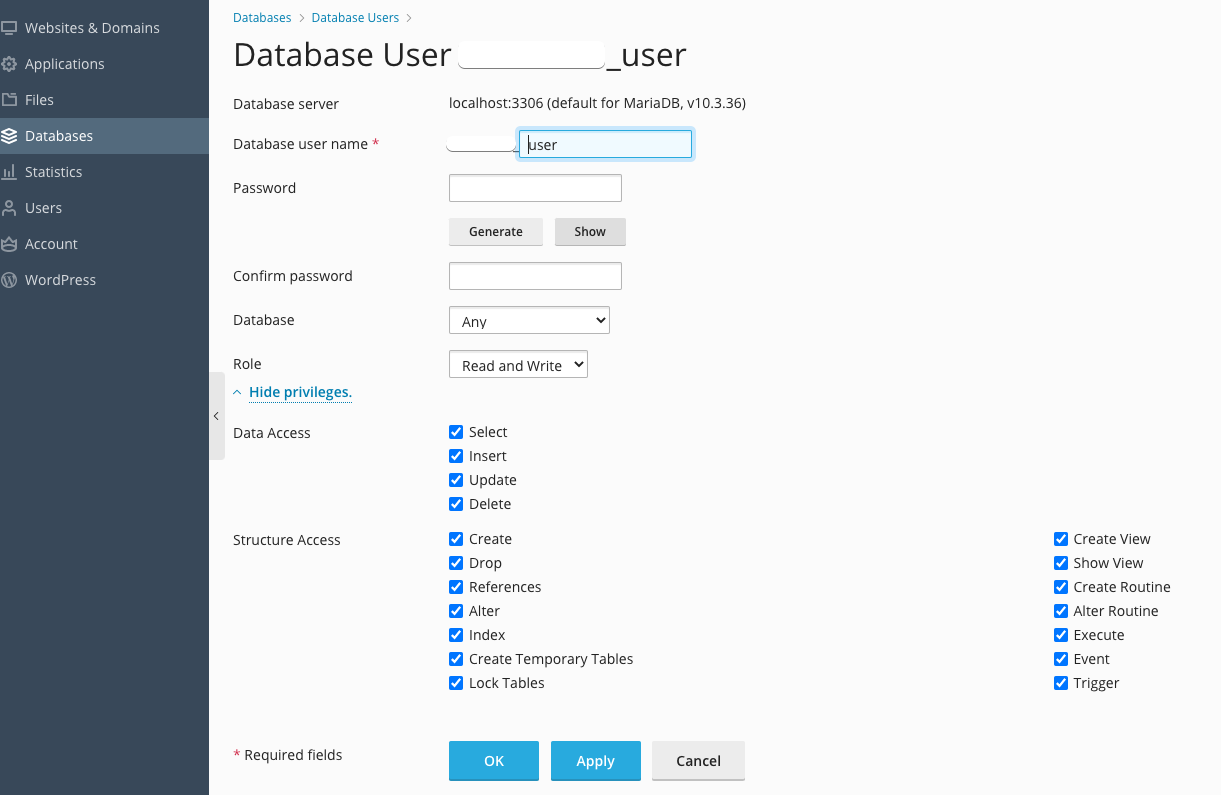
Leaseweb, on the other hand, uses a standardized approach with a quick start guide and customer portal & API for account management. These tools are structured to streamline the setup process, but might appear more technical compared to the variety of control panels offered by Hivelocity. Leaseweb’s single-day delivery time is efficient, but the lack of managed services means users might need to be more hands-on with their setup. This can be a potential drawback for those who prefer a more guided experience during the setup process.
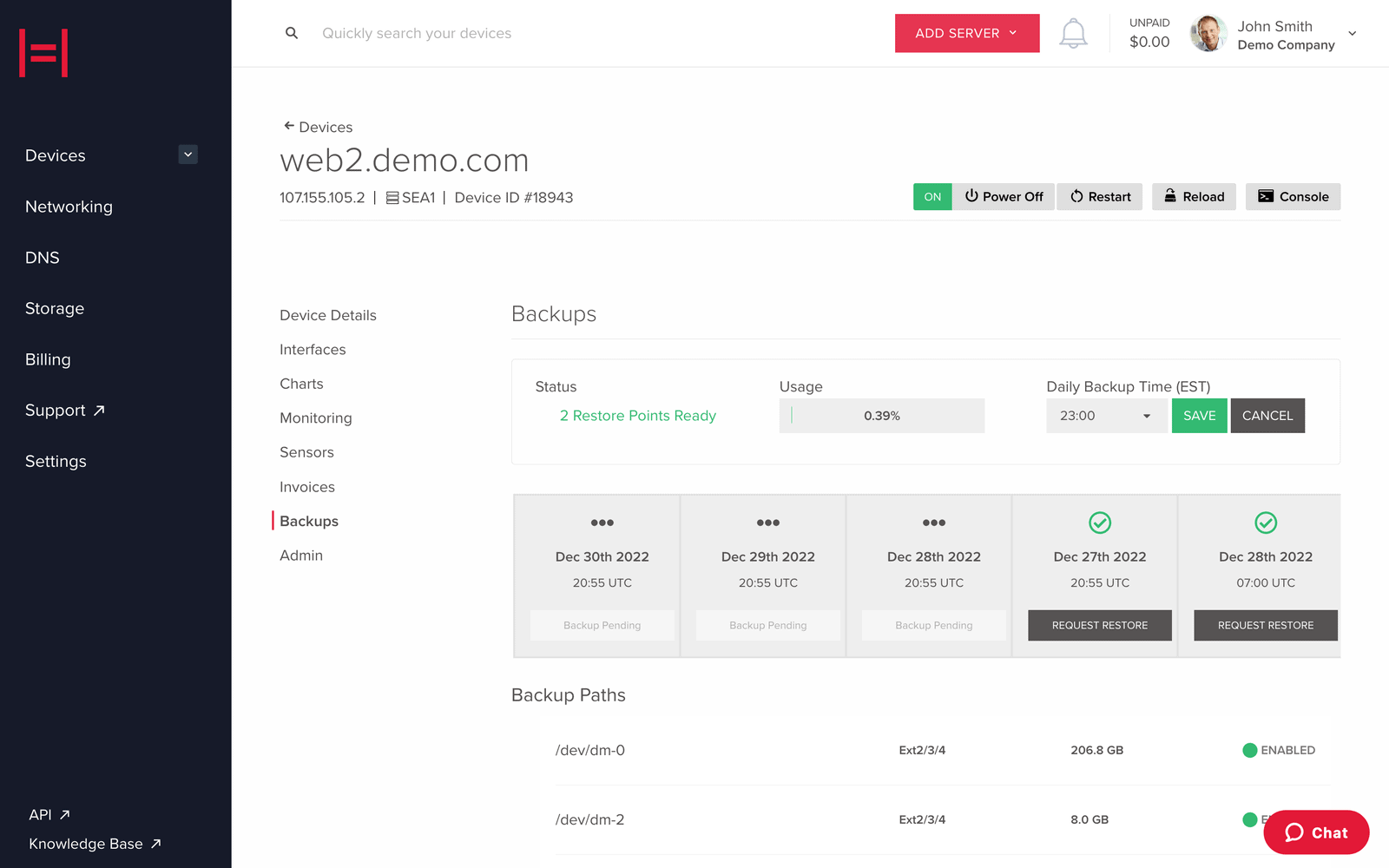
Hivelocity offers comprehensive migration services alongside its managed services. These managed services can assist in migrating websites without requiring additional fees. The use of various control panels also simplifies the transition process. Leaseweb’s migration tools are less explicitly detailed, and users might need to rely on manual migration, making the process potentially more complex and time-consuming.
The platforms provide extensive knowledge bases filled with guides, how-to articles, and instructional content. Hivelocity offers a wide range of resources alongside 24/7 chat and phone support. Leaseweb also boasts a detailed help center with an intuitive search function and around-the-clock support via live chat, phone, and ticketing, ensuring comprehensive user support.
User management
accessibility.
Score Components:
- Role customization (40%): Flexibility in creating and defining user roles and
permissions. - Ease of management (30%): User interface and tools for managing users.
- Access control (20%): Effectiveness of access control measures for different user
levels. - Scalability (10%): Ability to manage a growing number of users efficiently.
 6.9
6.9
 7.0
7.0
🏆 Winner Leaseweb: Versatile control panels and customer portal for user management.
When comparing the user management capabilities of Hivelocity and Leaseweb, it is clear that Leaseweb provides a broader array of tools and functionalities. Although specific details about Hivelocity’s user management features are unavailable, Leaseweb’s implementation of popular control panels like Plesk, cPanel, and Vesta suggests robust user management capabilities. These interfaces typically allow for detailed user role definitions and permissions. Additionally, Leaseweb’s Customer Portal and API enhance the control over hosting infrastructure, hinting at more flexible and customizable user role setups.
The user interfaces and tools for managing users in Leaseweb appear to be well-defined, with the inclusion of industry-standard control panels. Plesk, cPanel, and Vesta are widely recognized for their intuitive interfaces and comprehensive management tools. Users can easily create, modify, and assign roles, making the management process highly efficient. On the other hand, there is no detailed information about Hivelocity’s user management interfaces, putting Leaseweb at an advantage with its known user-friendly setups.
In terms of access control measures and managing a growing user base, Leaseweb stands out due to its diverse options. The control panels provided by Leaseweb are known for their effective access control features, ensuring that users have the necessary permissions to perform their tasks without compromising security. The Leaseweb Customer Portal and API further add to the platform’s capability to handle a growing number of users, offering scalable and flexible solutions. Lack of specific data on Hivelocity’s scalability and control measures makes it challenging to assess its efficiency in this regard.
Leaseweb user roles table:
| Role | Description | Access highlights |
|---|---|---|
| Admin | Full control over server and user management. | Create, modify, and delete users; manage server settings. |
| Reseller | Manages multiple client accounts. | Create and manage user accounts; assign resources. |
| Client | Access to personal account settings and resources. | Modify personal settings; manage site-specific features. |
| User | Limited access to specific features. | Perform predefined tasks; restricted to assigned roles. |
Customer support
hosting provider.
Score Components:
- Support communication channels (30%): Measures the variety of customer support types
provided (live chat, chatbot, email, phone, etc.) - Availability (20%): Assesses the availability hours for each channel, including 24/7
support options. - Technical support quality (30%): Assesses whether the provider offers comprehensive
technical support, including hardware upgrades (e.g., HDD to SSD), software installations, and web
server configuration changes. - Enterprise support (20%): Checks if there are dedicated or priority support services
for enterprise-level customers.
 9.5
9.5
 9.1
9.1
🏆 Winner Hivelocity: Hivelocity distinguishes itself with impeccable uptime, diverse server options, and 24/7/365 customer support.
 |
 |
|
|---|---|---|
Phone support |
||
Live chat support |
||
Chatbot |
||
Email/ticket support |
||
Enterprise support (dedicated agent, priority support) |

Hivelocity offers comprehensive customer support with 24/7/365 availability through live chat, phone, and ticketing system. They also provide walk-through articles and videos for self-help, along with custom server solutions and various control panels. With multiple data center locations worldwide, Hivelocity ensures reliable and tailored technical support irrespective of the user’s location.
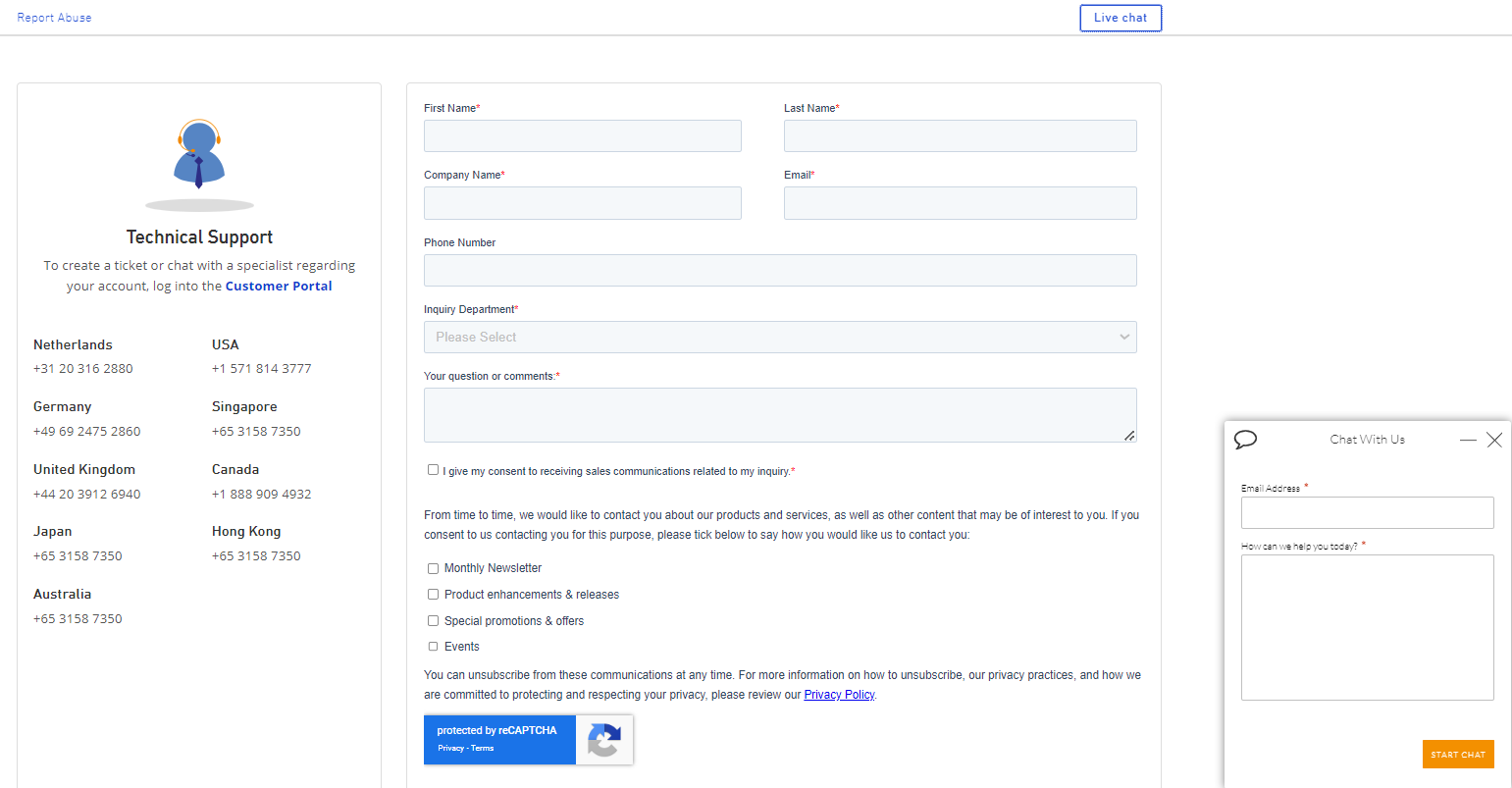
Leaseweb, on the other hand, provides customer support through live chat, email, phone, support tickets, and fax, with varied response times based on the selected service level agreement. Their support includes a knowledge base, API documentation, and a customer portal. While they offer comprehensive monitoring and advanced support tasks, their response times can be longer compared to Hivelocity, depending on the SLA tier chosen.
User feedback
Hivelocity is highly praised for its exceptional customer service, reliable server performance, and knowledgeable technical support. Long-term users, some with over a decade of experience, commend the company for its personalized support and rapid response times, often highlighting near-instant ticket resolutions and a proactive approach to addressing issues. Additionally, the infrastructure and network reliability receive strong accolades, with many users experiencing minimal to no downtime. While a few noted the increasing prices and occasional variability in support quality, the consensus is that Hivelocity offers an outstanding hosting service marked by dependability and top-tier customer support.
The hosting provider excels in offering comprehensive services with impressive billing and contract flexibility, making it easier for businesses to manage their finances. Users appreciate the choice between “Volume” and “Premium” network options, which cater to different performance needs, and find the support and user interface to be intuitive and straightforward. However, customers have raised concerns about high charges for excess traffic, restrictive password policies, inconvenient login procedures, limited payment gateways, and a lack of variety in available system distributions. Overall, while the service is robust and user-friendly, there are areas in need of improvement to enhance the customer experience.
FAQ
Which platform is better suited for hosting WordPress websites?
Leaseweb offers superior support, reliability, and advanced features for WordPress hosting, making it a better choice for this specific need. While Hivelocity also provides WordPress hosting, Leaseweb’s enhanced capabilities and stability make it the preferred option for WordPress websites.
Which hosting service offers better security features?
Hivelocity stands out with more advanced security features, including multiple SSL certificate types, robust firewall capabilities, proactive malware scanning, and compliance with SSAE-16, HIPAA, and PCI audits. While Leaseweb also provides solid security measures, including managed cyber security and DDoS protection, Hivelocity’s comprehensive security portfolio makes it the stronger option.
Which hosting service offers more scalability options for growing websites?
Both Hivelocity and Leaseweb offer flexible scalability options. Hivelocity provides customized solutions like private clouds and server clusters, and Leaseweb offers flexible configuration options with a focus on scalable VPS and cloud hosting. However, Hivelocity’s customizable hosting solutions provide more ease of scaling operations.
Which service is more suitable for hosting a high-traffic website?
Leaseweb is more suitable for hosting high-traffic websites due to its high bandwidth and network capacity, supported by a global network presence. Despite Hivelocity’s impressive uptime and reliability, Leaseweb’s extensive compute power and higher available port speeds give it an edge for high-traffic environments.
How do the providers handle email hosting and what features are included?
Hivelocity does not specify its email hosting capabilities, whereas Leaseweb offers explicit email hosting with various limits, such as 10 mailboxes for the Small plan up to 250 for the Large plan. Leaseweb’s structure supports both email campaigns and transactional emails, making it a more comprehensive option for email hosting services.
Which platform offers better customer support?
Hivelocity provides comprehensive customer support with 24/7/365 availability through live chat, phone, and ticketing system. Leaseweb also offers robust support, but its response times can vary based on the chosen SLA. Hivelocity’s rapid response times and proactive measures generally make it the better option for customer support.
The making of this blog
We followed a clear, step-by-step process to write and research this article.









